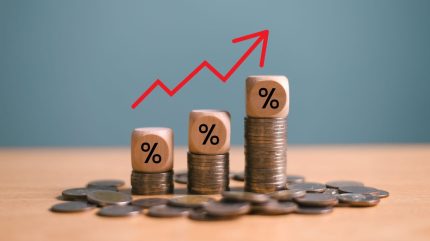
The surge in sustainable packaging, fuelled by growing consumer awareness and corporate commitments, has been abruptly checked by the spectre of inflation, according to new research from leading data and analytics company GlobalData.
The company found that while the Covid-19 pandemic accelerated the adoption of eco-friendly packaging, rising prices since 2022 have forced consumers to prioritise affordability over sustainability.
“With all-round support, sustainable packaging has been trending, especially since the Covid-19 pandemic, when consumer awareness increased,” said Parthasaradhi Reddy Bokkala, lead consumer analyst at GlobalData.
“However, the high inflation since early 2022 has been a dampener for these initiatives.”
“Sustainable packaging materials are generally priced higher than traditional packaging materials. They require special manufacturing processes to be acceptable to consumers. However, these processes increase the costs of the material,” added Deepak Nautiyal, consumer and retail commercial director, Asia-Pacific and Middle East at GlobalData.
“Amid rising input costs, manufacturers are not in a position to absorb these costs and have to pass them on to consumers, which will ultimately lead to price increases. Given the high prices due to inflation, products would become even more expensive with the addition of these costs.”

US Tariffs are shifting - will you react or anticipate?
Don’t let policy changes catch you off guard. Stay proactive with real-time data and expert analysis.
By GlobalDataGlobalData’s research indicates a clear shift in consumer behaviour.
While nearly a third of respondents (31%) expressed a preference for recyclable packaging, a majority (58%) are focused on price comparison and almost half (46%) said they are brand-switching to combat rising living costs.
“Asian consumers are generally enthusiastic about embracing products with sustainable packaging credentials. Conversely, they are highly concerned about high inflation and economic uncertainty, making them more pragmatic with their purchase decisions,” added Reddy Bokkala.
“With the paradox of supporting sustainable initiatives and scouting for cheaper prices, consumers are in a dilemma.”
“While inflationary pressures have mostly eased, the volatile geopolitical situation across the world is leading to economic uncertainty, which is not the best time to coax consumers to spend more on something that may not have a tangible benefit,” concluded Nautiyal.
“As such, sustainable packaging initiatives will be adversely impacted in the immediate future.”
As consumers grapple with this dilemma, packaging companies face the daunting task of balancing environmental responsibility with commercial viability.
The road ahead is likely to be fraught with challenges as they navigate the complex interplay between sustainability, affordability, and consumer preferences.



